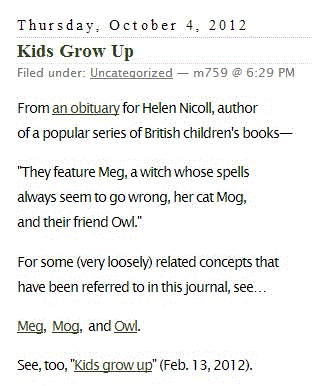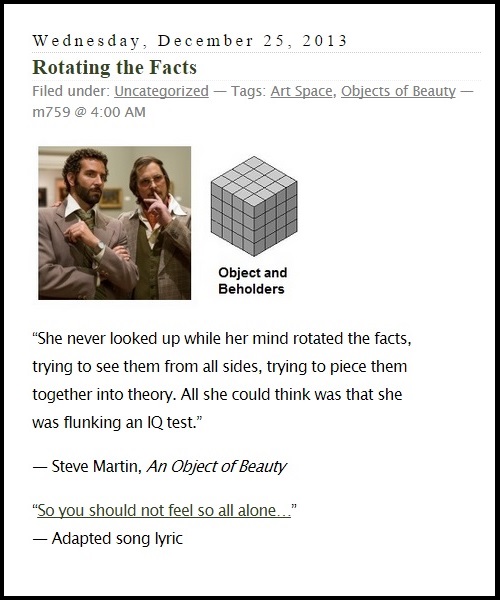This post was suggested by today's previous post, Depth,
by Plato's Diamond, and by Rebecca Newberger Goldstein's
recent fanciful fiction about Plato.
Plato, Republic , Book II, Paul Shorey translation at Perseus—
“Consider,” [382a] said I; “would a god wish to deceive, or lie, by presenting in either word or action what is only appearance?” “I don’t know,” said he. “Don’t you know,” said I, “that the veritable lie, if the expression is permissible, is a thing that all gods and men abhor?” “What do you mean?” he said. “This,” said I, “that falsehood in the most vital part of themselves, and about their most vital concerns, is something that no one willingly accepts, but it is there above all that everyone fears it.” “I don’t understand yet either.” “That is because you suspect me of some grand meaning,” [382b] I said; “but what I mean is, that deception in the soul about realities, to have been deceived and to be blindly ignorant and to have and hold the falsehood there, is what all men would least of all accept, and it is in that case that they loathe it most of all.” “Quite so,” he said.
Related material —
A meditation from the Feast of St. Francis, 2012 —

A post from Sept. 30, 2012, the reported date of death
for British children's author Helen Nicoll —

The New Criterion on the death of Hilton Kramer —

This uncredited translation of Plato is, Google Books tells us,
by "Francis MacDonald Cornfield." The name is an error,
but the error is illuminating —



































